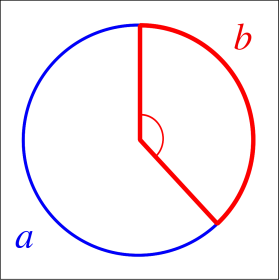Obvious Statement of the Day: Angle Shooting is Wrong
Poker is a game partially based on lying. It is a game in which stars are made because of their ability to fool players into handing over their money. And while that aspect of poker is one of the things that makes it fun, it is also one of the things that has led to poker players developing bad reputations over the years. When the average person thinks “poker player,” they think “gambler,” and in turn words like “cheater,” “liar” and “scammer.” It doesn’t help that for entertainment purposes, television shows and movies often portray poker players as low-lifes. It is just not exciting for people to see that the average poker player is just a regular person playing an enjoyable card game for money.
I am not a poker player by trade, just by hobby. But it is my enjoyment for the game and my involvement in the poker community for the past decade that really causes me to become perturbed when I read about poker players upholding the stereotype of being sleaze. The latest thing to rustle my jimmies is not a huge deal in the grand scheme of things. In fact, it is just one fairly minor incident, but it is indicative of a larger problem that is pervasive throughout the game: angle shooting.
For the uninitiated, angle shooting is doing something that is not technically against the rules, but is clearly against the spirit of the game. An angle (as it also phrased) is not out-and-out cheating, but is unethical. It is extremely common, but nevertheless disappointing every time it happens.
One such incident was recently made public on the Two Plus Two message forum; it occurred during this past weekend’s $500 + $65, $500,000 guaranteed prize pool event at the Planet Hollywood casino’s “PHamous Poker Series.” As told by Jimmy “gobboboy” Fricke, it was deep in the tournament and the player at his table who was under the gun moved all-in for about 600,000 chips with blinds at 30,000/60,000. The big stack, who was sitting in middle position, called. Professional poker player Doug Lee said, “All-in, two million,” from the big blind. According to Fricke, though, Lee clearly had less than 1.5 million chips. The big stack asked Lee if he did, in fact, say two million. When Lee said yes, the big stack folded. Lee beat the other all-in player with A-K versus 5-5. 
After the hand, Fricke called Lee out on what he felt was an angle shot (Fricke actually called it cheating), upon which Lee insulted him and went on a “rant.” The tournament director apparently just warned everyone at the table not to do what Lee allegedly did and that was it.
Of course, the obvious first question is whether or not Lee purposely misstated his stack size. Is it out of the question that he could have just done the math incorrectly? In this case, yes, it is out of the question. As one person said in the Two Plus Two thread, Lee has been a pro poker player for years and years, regardless of what we think of his poker prowess, he knows what he is doing. Pros like him usually know their chip counts without hesitation and even if they don’t know the exact count, they know it to within just a few percent of the actual figure. To misstate it accidentally by possibly 50 percent is nonsensical.
Additionally, almost nobody announces the size of their stack when moving all-in. They just say they are all-in. The fact that he said “two million” along with his all-in declaration is an indication that there was purpose behind his statement. That purpose was to make his opponent think he had more chips than he really did, scaring him into a fold. On top of all that, Lee has a poor reputation for sportsmanship in the poker community and has been known to flaunt angles in the past. If this was a recreational player in his first tournament, we might believe this was an accident, but considering who it was, it was almost certainly an angle shot.
Again, in the grand scheme of poker, this one incident is not that big a deal. It is just one player shooting an angle, something that happens every day in every poker tournament. In fact, Lee may have ultimately hurt himself by doing it, as he may have beaten the big stack had the man called. Plus, it is not lost on me that the big stack should have asked the dealer for a proper count, rather than relying on Lee. So the second question is: why does this even matter?
It matters because angle shooting is just another stain on the game. Not as big of a stain as, say, the UltimateBet / Absolute Poker superuser scandals or Full Tilt Poker’s misappropriation of player funds, but a stain nonetheless. It is poker players living up to the stereotype of being cheating slime. Just because poker is game that inherently involves lying* and exploiting edges, it does not mean that you have to find every opportunity to exploit your opponents.
It matters because though my goal at the poker table is to take your money, my secondary goal is still to have fun. There are very few people who play poker despite not enjoying it, no matter how good they are (exception: Daniel Colman). An angle shooter brings down the mood at a table; he makes people simply not want to be there. Pros and seasoned amateurs can deal with it in the long run. They know there will be another day and another table and tell themselves karma will catch up to the guy. But remember, most players are just casual players trying to have some fun. In the tournament in question, there were likely loads of recreational players because of the (relatively) affordable buy-in. Those players could potentially feel turned off by the game when an angle shooting comes a-calling and will hesitate to return. The last thing poker needs, especially with the political battles going on in the United States, is for players to turn away from the game and poker to earn its rather low reputation.
But what can be done about it? After all, angle shooting is not against the rules. For one, public shaming could do the trick. I am not saying to put someone in the stockade for a single incident; I am not going to shun someone for what may be single, relatively harmless moment of lack of judgment. But repeat offenders, especially those who know they are doing it and are unapologetic about it, need to be outed. With any luck, they may reduce the frequency of their appearances at the table. At the very least, other players and tournament directors will be aware of them and can be on slightly higher alert when they are playing.
And as for those tournament directors, they need to feel comfortable meting out punishment when it is obvious someone is shooting an angle. Just because it is not cheating doesn’t mean the player should get away with it. There is not a whole lot that can be done to punish a poker player during a tournament, but at least make him sit out an orbit.
*Let me be clear, though: there is a difference between lying and bluffing. Bluffing is lying in such a way that is consistent with the rules and spirit of poker. Lying is just being an asshole.



















COMMENTS